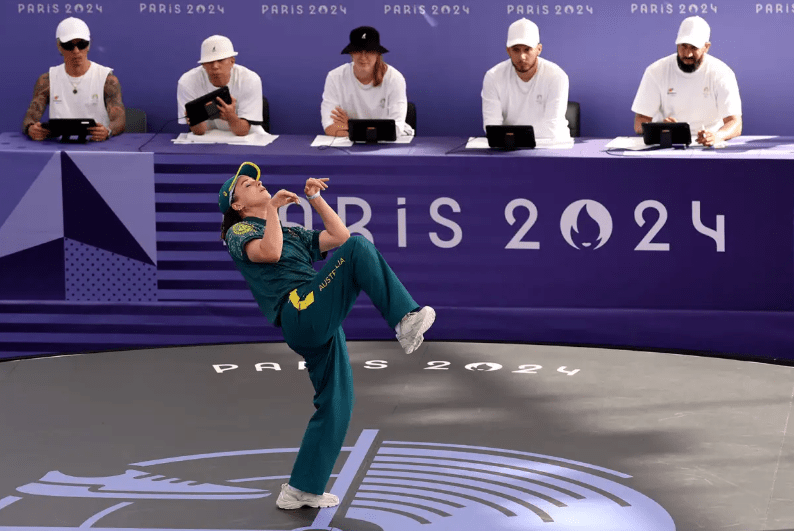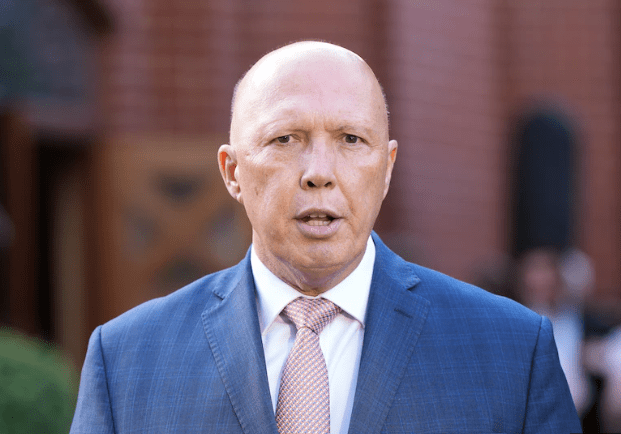Rachael Gunn, known in the breaking community as “Raygun,” has addressed the intense criticism that followed her performance in the 2024 Paris Olympics.
Gunn represented Australia in breaking’s Olympic debut, but her journey was cut short in the round-robin stage after facing tough competitors from the United States, France, and Lithuania.
Despite her sincere effort, Gunn’s participation sparked a heated debate on cultural appropriation, given breaking’s origins in African-American and Latino communities in the South Bronx during the 1970s.
Watch on TikTok
In an emotional Instagram video posted on Thursday, Gunn, a lecturer at Macquarie University’s Department of Media, Communications, Creative Arts, Literature, and Language, responded to the backlash and addressed the misinformation that had spread about her Olympic journey.
“I went out there and I had fun,” Gunn said in the video. “I did take it very seriously. I worked my butt off preparing for the Olympics, and I gave my all, truly.”
The backlash included memes and online critiques, with many questioning the legitimacy of Gunn’s selection for the Olympics. A change.org petition titled “Hold Raygun Rachel Gunn & Anna Mears Accountable for Unethical Conduct Olympic Selection” alleged that Gunn had manipulated the selection process, with accusations that her husband and coach, Samuel Free, had judged her qualifying event.
These claims were swiftly debunked by official bodies. AUSBreaking, the organisation overseeing the sport in the region, confirmed that Gunn had qualified for the Olympics by winning the 2023 World DanceSport Federation (WDSF) Breaking Oceania Championship.

They also clarified that Free was not one of the judges at this event. Both the Australian Olympic Committee (AOC) and AUSBreaking released statements supporting Gunn and condemning the harassment she has faced.
“The petition has stirred up public hatred without any factual basis. It’s appalling,” said AOC CEO Matt Carroll. “No athlete who has represented their country at the Olympic Games should be treated in this way, and we are supporting Dr. Gunn and Anna Meares at this time.”
Despite these clarifications, the criticism continued. Gene Lee, a prominent African American TikToker, was among those who took aim at Gunn, stating, “Raygun should be fired as a cultural studies professor… This is a white woman doing white saviourism, centring herself as a victim when she is the one who is being insulting to Black Americans.”
Sasha Whitney, another critic, argued that the sympathy towards Gunn highlighted issues of white fragility. “You are not a victim; you competed in the Olympics to represent your country, and you took the spot knowing that you did not have the chance to win,” Whitney said.
Racial justice advocate Neha Madhok, Chair of 350Australia, also weighed in, criticising Gunn’s selection as reflective of Australia’s cultural biases. “This is a reflection on the whiteness of Australian sport, and of Australian attitudes. We could have sent incredible people; the talent is absolutely there, but you have to go to where people are,” Madhok tweeted.
“There are incredible dancers in places like Western Sydney (just one example) where Black and Brown people are honing their skills and their craft in arenas not recognised by establishment institutions.”
Breaking (breakdancing) emerged in the 1970s as a form of self-expression for marginalised Black and Latino communities in New York, responding to the social and economic challenges they faced.
Gunn’s video also touched on the personal impact of the controversy. “I didn’t realise that that would also open the door to so much hate, which has frankly been pretty devastating,” she admitted. She ended her message with a plea: “I’d really like to ask the press to please stop harassing my family, my friends, the Australian breaking community, and the broader street dance community.”
As Gunn remains in Europe for some “preplanned downtime” following the Olympics, the debate over cultural representation in sports like breaking continues, highlighting the complex intersections of race, culture, and globalisation on the world stage.

